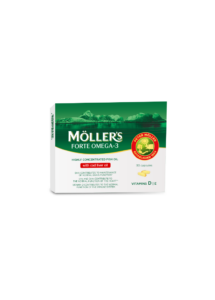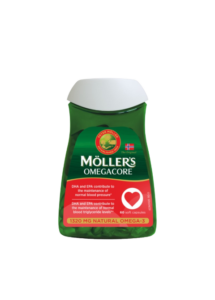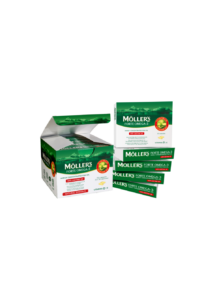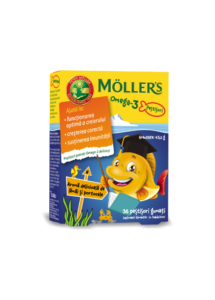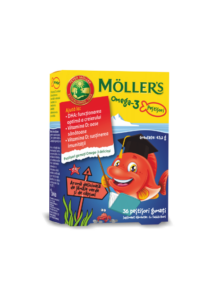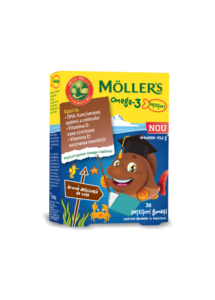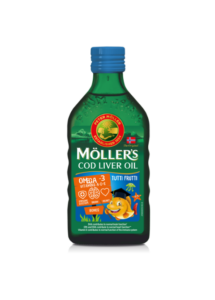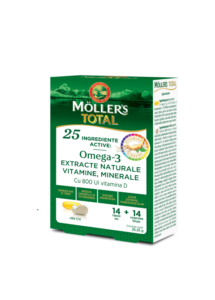Dovoljan unos omega-3 neophodan je za održavanje normalnih tjelesnih funkcija i procesa, a to je još važnije kada ste trudni.
Home » Trudna? Tada je omega-3 još važnija
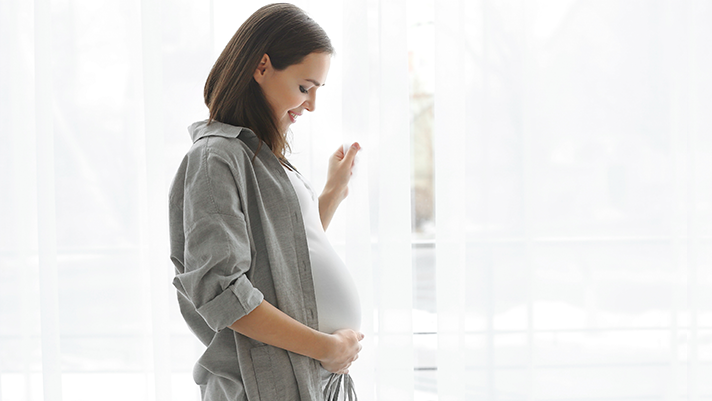
Pročitajte više članaka o omega-3 ovdje
Omega-3 u trudnoći
Briga o djetetu počinje onog dana kada saznate da ste trudni, pa nije ni čudo da ste zabrinutiji oko toga što jedete nego inače. Vaša prehrana je ujedno i prehrana vaše bebe, au ovom razdoblju važnije je nego ikad imati zdravu i raznoliku prehranu, s dobrim, sigurnim izvorima omega-3 masnih kiselina.
Omega-3 za mozak i oči
Europska agencija za sigurnost hrane (EFSA) preporučuje da trudnice dnevno unesu 200 miligrama masne kiseline DHA. DHA se nalazi u masnoj ribi kao što su losos, pastrva, haringa, skuša i sardine. Neke namirnice bogate omega-3 masnim kiselinama poput dimljenog lososa i sirove tune (sushi) ne preporučuju se tijekom trudnoće zbog rizika od bakterije listerije, koja bi mogla naškoditi vašem nerođenom djetetu. Listerija može rasti u hrani koja nije bila zagrijavana, poput dimljenog lososa i sirove tune. U trudnoći biste također trebali izbjegavati paštete od ikre i jetre zbog opasnosti od toksina. Omega-3 masne kiseline pridonose normalnom razvoju funkcija mozga i očiju fetusa, zbog čega su Omega-3 tako važne. Mnogo toga se događa u razvoju vaše bebe tijekom 40 tjedana trudnoće, a vaše nerođeno dijete podložno je vašim izborima. To vrijedi i nakon poroda, kada se vaša beba doji i tako nastavlja dobivati hranjive tvari od vas.
Sigurna trudnoća
Kada ste trudni, sasvim je prirodno da želite najbolje za svoje dijete. Poput većine budućih majki, vjerojatno provodite više sati nego inače tražeći informacije na internetu. Želite donositi sigurne odluke na temelju istraživanja i rigoroznog testiranja, a ne samo kupiti prvu stvar na koju naiđete. To se odnosi na sve, od odabira baby monitora do dodataka prehrani. Kada odaberete dodatke omega-3, važno je imati na umu da nemaju svi dobavljači iste visoke standarde u proizvodnji proizvoda s omega-3. Obavezno odaberite proizvođača s visokim standardima u kontroli kvalitete tijekom cijelog procesa proizvodnje. Samo najbolje je dovoljno dobro za vas i vašu bebu!
What is good health?
Do you have a good lifestyle?
Lifestyle simply means the way in which you live. Health and lifestyle go hand in hand. You might feel you have a good lifestyle if you are physically active, eat healthily and generally experience a sense of wellbeing. Conversely, if you want good health you should also have a good lifestyle.
Physical activity is the major contributor to a good lifestyle, but diet, drugs, stress, sleep and social conditions are also play an important role. Being able to use the body properly to avoid injury also affects lifestyle. Physical activity can also prevent depression and help you to recover more quickly from mental illness, both of which obviously affect your lifestyle.
Diet can be a difficult topic for many. Perhaps you eat too much or too little or maybe you find it hard to know what foods to combine to have a balanced diet. It’s also important to eat food that contains important vitamins, minerals and dietary fibre, omega-3 and antioxidants. On top of all this, you also need to get enough energy, protein and the correct fatty acids. The requirement for these nutrients changes throughout your life. When you are older you also have different requirements than children and younger adults. Women also have different requirements than men. Pregnant and breastfeeding mothers also have special requirements.
When you get older, you lose muscle mass and your body requires less energy and therefore less food. You may lead a less active life than you did before, which is why you require less food. However, your need for minerals, vitamins and other nutrients remains the same. Of course, there are plenty of healthy and active older people, but when you reach 70 to 80 years of age, it’s easier to become ill, especially during flu season.
Some steps you can take to improve your lifestyle and health are to:
- eat a healthy and varied diet
- stay active
- watch your weight
- avoid too much alcohol and don’t smoke
- get enough sleep
- think positive
- practise good hygiene
What is good quality of life?
The World Health Organisation (WHO) defines quality of life as a state where the individual can realise their potential, cope with normal stressful situations, work in a rewarding and positive way, and be able to contribute to others and society.
Quality of life is a wide and somewhat diffuse concept that includes joy in, and a desire for, life. These are values that are rather felt than measured, which in turn are based on personal environment and choices. Quality of life doesn’t necessarily depend on being healthy or sick. It’s the moments between worries, sorrows, problems and ailments that matter. For example, if you have a chronic illness, a feeling of mastery can be important when talking about quality of life.
To sum up, quality of life is a combination of health, lifestyle, networks and social support. It’s about experiencing joy, meaning in life, satisfaction, security and a sense of belonging, as well as being able to use your strengths. It’s also about feeling interest in life, coping with everyday situations and a being committed to something or someone. If you have good quality of life, you will be able to cope better with the inevitable stressful situations in life.
Naši proizvodi
-
MÖLLER'S FORTE OMEGA 30 kapsule
-
MÖLLER'S OMEGACORE
-
MÖLLER'S FORTE OMEGA 150 kapsule
-
MÖLLER'S OMEGA 3 RIBICE s okusom NARANČE I LIMUNA
-
MÖLLER'S OMEGA 3 RIBICE s okusom JAGODE
-
MÖLLER'S OMEGA 3 RIBICE s okusom COLE
-
MÖLLER'S OMEGA 3 ULJE JETRE BAKALARA s okusom TUTTI FRUTTI
-
MÖLLER'S OMEGA 3 ULJE JETRE BAKALARA s okusom LIMUNA
-
MÖLLER'S TOTAL
Saznajte više
Program vježbanja za starije osobe
ZDRAVE KOSTI ZDRAVO STARENJE
Zdrava prehrana tijekom trudnoće
MOZAK ZDRAVO STARENJE
Dobro zdravlje, način života i kvaliteta života – što sve to znači?
BAKALAR ZDRAVO STARENJE
Pronađite inspiraciju na našem Instagramu
This error message is only visible to WordPress admins
Error: Access Token is not valid or has expired. Feed will not update.
